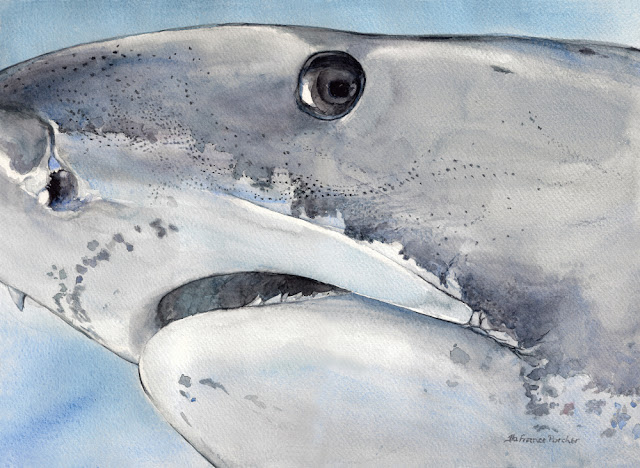Randall Arauz on CITES Loopholes
It is well known that in spite of all of the work concerned people are investing, decade after decade, in an effort to save sharks from extinction, they are being depleted faster and faster, with fisheries around the world in a frenzy to profit from the value of their fins.
Randall Arauz has more experience in fighting for sharks than anyone I know, so I asked him why CITES listings have not been working. Because getting sharks listed on CITES is the only way of protecting sharks that we currently have.
This is what he told me:
“There is a reason why Appendix II listings DO NOT WORK. CITES is a Wildlife Conservation Convention, and as such, its domestic implementation is held by the Ministries of Environment, which have Wildlife and Biodiversity Conservation Laws for the implementation of such conventions. This is true for the Convention on the Conservation of Migratory Species of Wild Animals (CMS) and the Convention on Biological Diversity (CBD).
“However, at least in the case of CITES, in order to get as many countries as possible to sign, they have to leave little “escape hatches”, so that countries that do not want to abide by the agreements can get away. One such “escape hatch” for instance, is the possibility of doing a second plenary vote on the last day of the meeting, when many delegates have left. Or countries can file for “exceptions” if they do so during a certain time-frame after the agreement was reached, I think it’s three months.
“The biggest loophole of them all, is the allowance by the Convention for a country to have two different CITES administrative and scientific authorities. So, what countries all over the world have been doing, is that once CITES implementation time comes, is claim that sharks are not wildlife but species of fisheries interest, and they promulgate that CITES authority for endangered species of sharks is the Ministry of Agriculture, or Ministry of Production, of Fisheries Department, for the implementation of Fisheries legislation and agreements with Regional Fisheries Management Organizations and CITES alike. Its a major water down.
“For CITES to work, we need endangered species of sharks to be acknowledged as wildlife, and countries must use their domestic wildlife conservation laws to protect them. Allowing fisheries, production, and agriculture ministries to dictate conservation policy for endangered shark species is condemning them to extinction.
“Colombia just a few days ago removed shark and ray species from the commercial species list.
“Next March 17 I have the final hearing of a trial in a case we filed against the Ministry of Environment and Ministry of Agriculture for promulgating that sharks aren’t wildlife in 2017, and which stripped the Ministry of Environment of any authority over endangered shark species. We want the authority returned to the Ministry of Environment, and we want the full implementation of the Wildlife Conservation Law.
We have important jurisprudence on our side in this case. In 1999, I filed a suit against the Costa Rican Fisheries Institute for allowing the catch and slaughtering of 1800 green turtles per year from July to September for human consumption along our Caribbean coast. INCOPESCA’s defence was that green turtles were commercial species that had been consumed along the Caribbean coast for hundreds of years, and that it was better to regulate this activity which otherwise would be held illegally. The Constitutional Court ruled in our favor, saying that the commercialization of an endangered species is a violation of the Precautionary Principle and thus of the Constitution itself, and the wildlife and biodiversity conservation conventions that the country has signed and ratified.”
----------------------------------------------------------------------------------------------------------------------------------------
Thank you, Randall, for revealing how things really work out when we think we are getting sharks protected. It is appalling to realize that human beings will actually do such things, knowing that they are sending large animals towards extinction.
What is the world coming to?
And what is really ironic, is that we call sharks monsters.




Comments